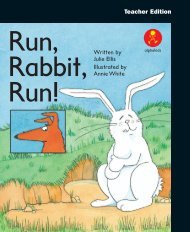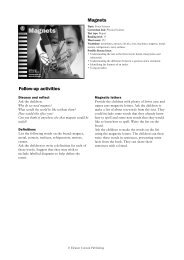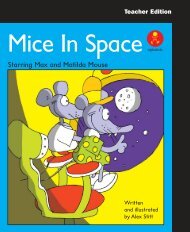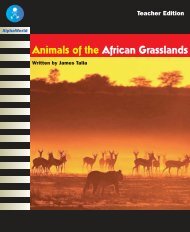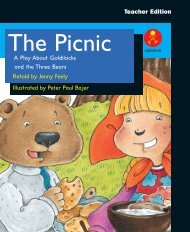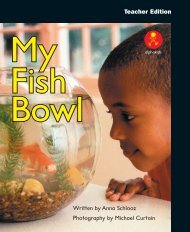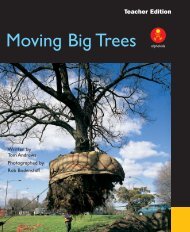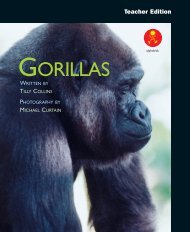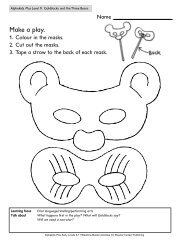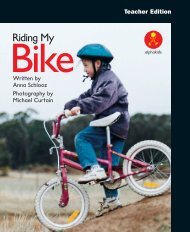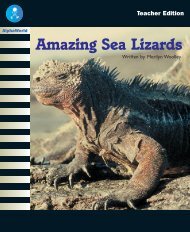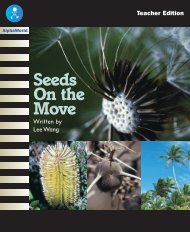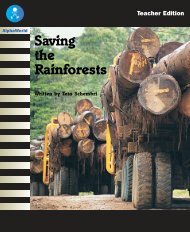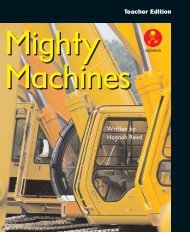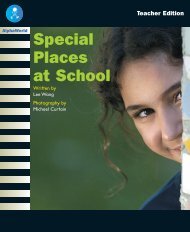Camping
Camping
Camping
You also want an ePaper? Increase the reach of your titles
YUMPU automatically turns print PDFs into web optimized ePapers that Google loves.
Being a code breaker<br />
Explore the following text features:<br />
• High-frequency words: a, can, for, go,<br />
I, in, it, my, said, was, we, went, you.<br />
• Grammar: explore what contractions<br />
are and how they are formed; for<br />
example, what’s, where’s.<br />
Being a text user<br />
Refer to the text when discussing these<br />
questions:<br />
What kind of book is this, fact or fiction?<br />
What does this book teach us about camping?<br />
Did you like this book? Why or why not?<br />
Being a text critic<br />
Do all children get to go camping?<br />
Is this the only way to go camping?<br />
Responding to text<br />
Ask the children to write a list of<br />
all the things the family did on<br />
their camping trip. Encourage them to<br />
check the accuracy of their lists by<br />
referring back to the book. Ask them to<br />
place the events on their lists along a<br />
timeline in the correct order.<br />
Ask the children to write a list of<br />
the equipment the family would<br />
have needed to take on their camping<br />
trip.<br />
The children could list words from<br />
the book under the categories of<br />
present and past tense.<br />
Present tense<br />
walk<br />
swim<br />
Past tense<br />
walked<br />
swam<br />
Writing<br />
Ask the children to innovate on the text<br />
by writing about the second day of the<br />
family’s camping trip.<br />
Assessment<br />
Can the children:<br />
• draw inferences about the text to say why the family in the story did not have a<br />
toaster?<br />
• explain what the apostrophe in words such as ‘let’s’ indicates?<br />
whole text activity sentence activity word activity



